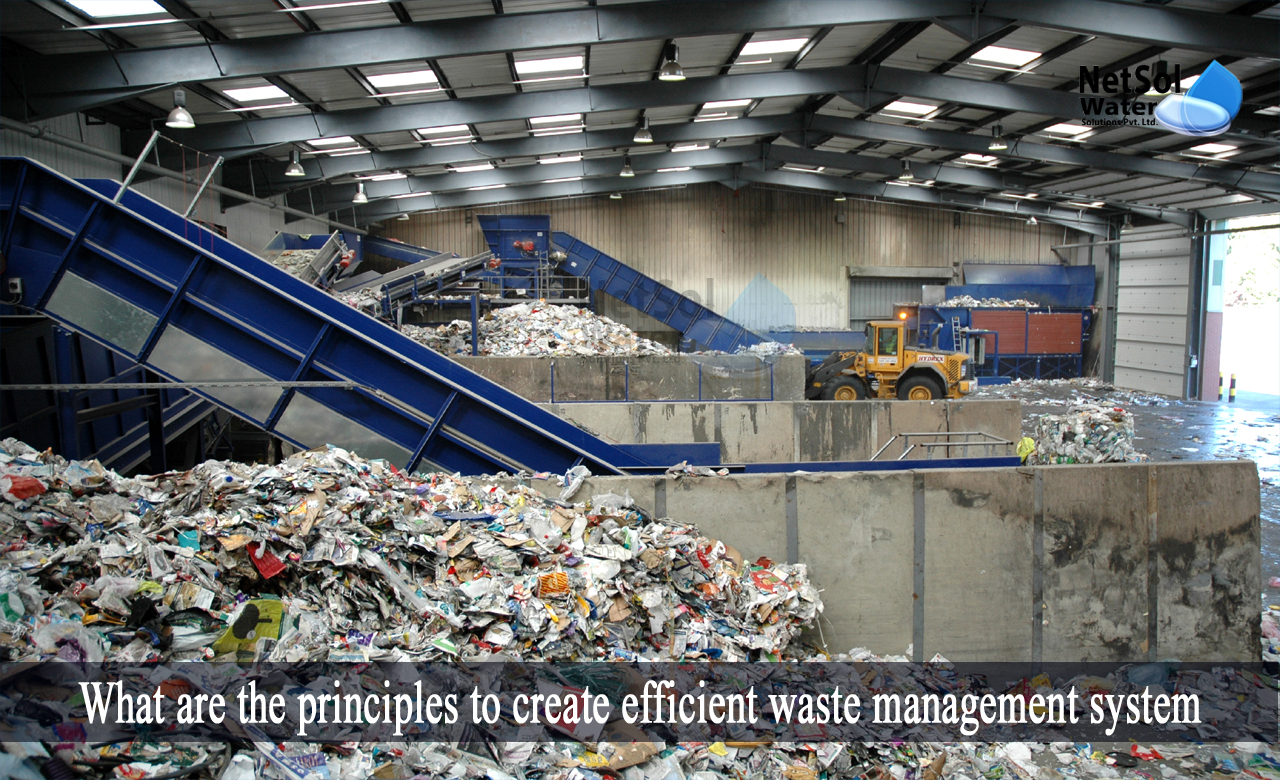What are the principles to create efficient waste management system?
The term "waste management" (or, waste disposal) refers to all procedures, plans, and methods for controlling waste, from its generation at the state level through its elimination at the federal level.
Solid, liquid, and gaseous waste may all be classified, and each form needs to be dumped and treated differently. They can be dangerous to people if improperly handled and controlled. The goal of waste management is to enhance both our quality of life, and the environment that supports us.
Building clean, livable communities requires effective waste management, but many developing nations have difficulty putting these strategies into practice. Waste management is only possible if we follow certain principles and for that awareness we are here.
Let’s go and know what principles the waste management really should follow:
Principles to create waste management systems
Cities are in the forefront of efforts to achieve Sustainable Development Goals 11, 12, and 14, because they are the primary producers of plastic pollution. Scaling up cooperation between politicians and the unregulated waste industry offers a special chance, to help regional communities. Following are the identifying principles for the same;
· Hierarchy of Waste
The first and most important rule of waste management is to reuse, recycle, and reduce. The primary idea of the waste hierarchy is the promotion of integrated solutions, to reduce waste creation, which is why it is shown as a pyramid.
The next phase is to consider different reuse options for the waste; this is followed by the waste recycling process, which includes composting.The next level entails strategies for waste conversion, energy production, and material repair.
The disposal of the leftover wastes that cannot be treated further is the very last phase. This involves burning waste or getting rid of landfills.
· Circulation of a Product
A product's life cycle is crucially influenced by its circulation of design (configuration, layout, pattern, and sketch), mass manufacturing, distribution (delivery, supply, handling, and translocation), and initial usage.
The waste hierarchy levels of the three Rs are then put after all of these phases. Every phase of the life cycle has a number of opportunities to rethink, reinvent, and redesign the waste, in order to maximize its usefulness and make it most appropriate for the users.
By minimizing the use of scarce resources, this idea aims to reduce the amount of waste produced.
· Efficiency of Resources
Since, the pace of restoration of these resources is far slower than the rate at which humans utilize them, resource efficiency entails the ethical use of our planet's finite resources. This idea aids in the restoration of the environment's natural beauty.
· The Polluter-Pays Rule
According to this theory, the individual who causes the pollution or waste must pay for it. After the waste has been properly treated, the polluting party is responsible for paying for its proper disposal.
· Enhance what is currently there
The local economic, social, and environmental issues influence the informal waste sector. To find possibilities to improve waste management services and shared objectives, policymakers must understand these stakeholders.
Coordination with regional authorities and community leaders is the first step in achieving this understanding.
· De-stigmatize wasteful behavior
The societal stigmatization of waste pickers is exacerbated by exclusive waste management strategies. Cities may increase awareness by highlighting the advantages of their services, rather than ignoring their function.
Supporting groups with government contracts that involve lobbying and community outreach, is one of the most effective strategies to reduce stigma associated with informal garbage workers.
· Carry out instruction at all levels
The linkages between the official and informal economy must be understood by all city stakeholders. To establish best practices and a shared knowledge of the many roles and duties involved in waste management, it is essential to strengthen the capacity of garbage pickers, city institutions, civil society, and the private sector.
· Put low-tech practices first
Modern waste management practices have the potential to displace existing networks of un-organized labour. Cities can promote de-centralized garbage management and the manual collection of waste.
How can we assist?
To learn how to apply these principles in practice and for more information on tackling solid waste pollution, please contact our experts at Netsol Water where we are dedicated to help at any possible cost.
We also provide various solid waste management solutions, including solid waste recyclers, green waste recyclers, organic waste converters, etc.
Netsol Water is Greater Noida-based leading water & wastewater treatment plant manufacturer. We are industry's most demanding company based on client review and work quality. We are known as best commercial RO plant manufacturers, industrial RO plant manufacturer, sewage treatment plant manufacturer, Water Softener Plant Manufacturers and effluent treatment plant manufacturers. Apart from this 24x7 customer support is our USP. Call on +91-9650608473, or write us at enquiry@netsolwater.com for any support, inquiry or product-purchase related query.



